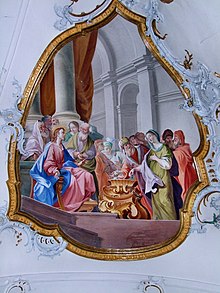"Give it Away, Give it Away, Give it Away Now..."
If Michael Bloomberg (he's a Michael, not a Mike, that's a good thing.) has learned anything from dipping his toes into America outside of New York, it might make him a better philanthropist here at home.
The need is still there, Michael.
And you have so much yet to give..
(When God closes a door, he opens a window. Bloomberg could be remembered now as another Andrew Carnegie, whose libraries are still standing in small towns across America...)
------------------
I hope there's a Michael Bloomberg football field donated to the children of American Samoa voters who gifted him yesterday with a political win. Maybe he could ship a few of Georgina's old horses down there too for the kids to play on when she is done jumping them?
Sometimes you become a bigger man in what you give than in this world than what you take from others. Why, there have been longlasting stories written about Jewish men, and women, like that:
"He sat down opposite the treasury and observed how the crowd put money into the treasury. Many rich people put in large sums. A poor widow also came and put in two small coins worth a few cents. Calling his disciples to himself, he said to them, 'Amen, I say to you, this poor widow put in more than all the other contributors to the treasury. For they have all contributed from their surplus wealth, but she, from her poverty, has contributed all she had, her whole livelihood.'Wiki commentary:
Commentary
However, Addison Wright observes that there is no indication given of the widow's demeanor or frame of mind. He points out that earlier, in Mark 7:10-13, Jesus takes to task the scribes and Pharisees for a hypocrisy that would impoverish parents.
For Moses said, 'Honor your father and your mother,' and 'Whoever curses father or mother shall die.' Yet you say, 'If a person says to father or mother, "Any support you might have had from me is qorban"' (meaning, dedicated to God), you allow him to do nothing more for his father or mother. You nullify the word of God in favor of your tradition that you have handed on. And you do many such things."In the passage immediately prior to Jesus taking a seat opposite the Temple treasury, he is portrayed as condemning religious leaders who feign piety, accept honor from people, and steal from widows.
"Beware of the scribes, who like to go around in long robes and accept greetings in the marketplaces, seats of honor in synagogues, and places of honor at banquets. They devour the houses of widows and, as a pretext, recite lengthy prayers. They will receive a very severe condemnation."
The same religious leaders who would reduce widows to poverty also encourage them to make pious donations beyond their means. In Wright's opinion, rather than commending the widow's generosity, Jesus is condemning both the social system that renders her poor, and "… the value system that motivates her action, and he condemns the people who conditioned her to do it."
Elizabeth Struthers Malbon concludes that Wright’s interpretation is “more ingenious than convincing.” Others see the widow’s contribution as an act of radical self-abandonment in service to God, an act of strength on the part of a poor widow. Like Jesus who gives his whole life, the woman gives πάντα τὸν βίον (panta ton bion), “all [her] life.”
Quentin Quesnell sees in this account "… a rebuke and rejection of the wrongdoers." Quesnell notes that if Jesus' statement was to be seen as an endorsement of the widow's action, it bears none of the usual comments, such as "Go, and do likewise."
The account of the Widow's Mite is followed by,
"As he was making his way out of the temple area one of his disciples said to him, "Look, teacher, what stones and what buildings!" Jesus said to him, "Do you see these great buildings? There will not be one stone left upon another that will not be thrown down."


<< Home